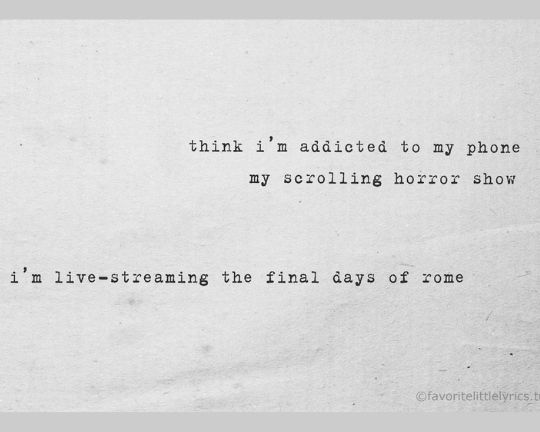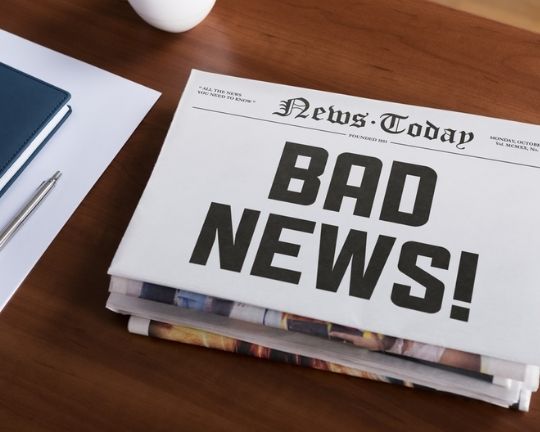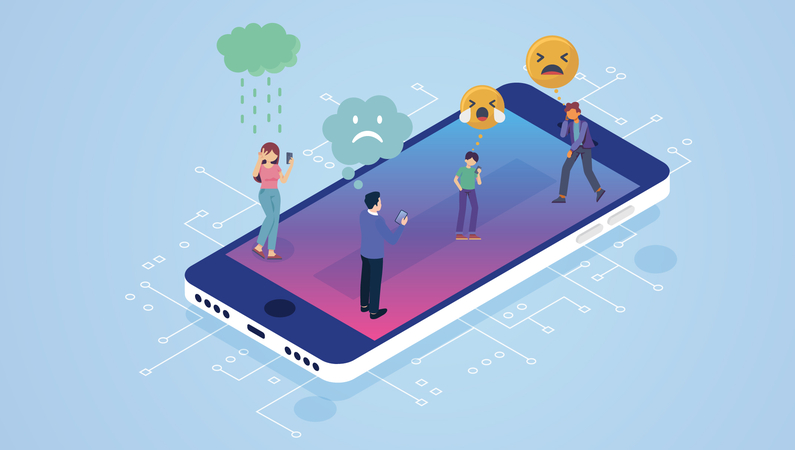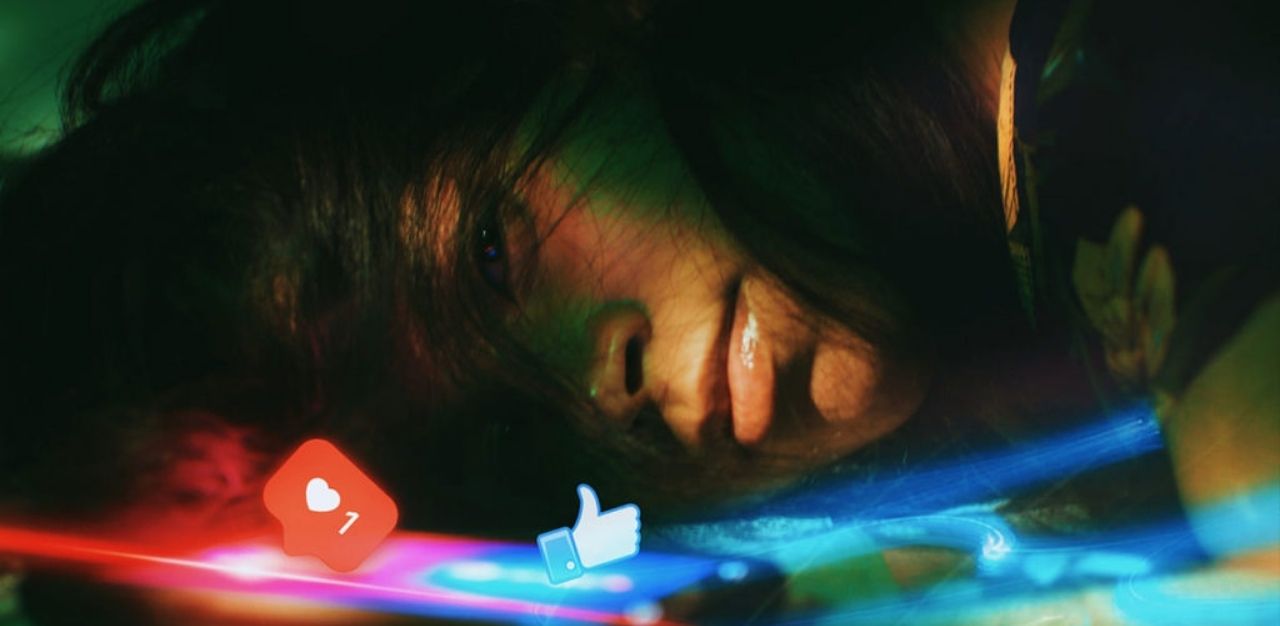We’re (Br)OK(en) – Sounds funny but it’s true.
Hook-ups and dating opportunities now are but a smidge of what social media can offer. Today, in a social climate shaped by the COVID-19 pandemic, intense global political discourse, and social injustice, social media continues to bombard us with news that’s less than uplifting. In these generally dark days, many of us haven’t really felt up to doing fun stuff. One in three of us are anxious or depressed. How does this relate to our social media consumption?
In a phrase – we’ve been doom scrolling.
Marketers, brands, and media outlets know that social media is the easiest way to reach audiences like us, and for the most part, most of us don’t seem to mind too much. But what happens when most of what we want is framed by the almost dystopian times that we’re living in? The result is trauma, and it’s scarring our minds, our bodies, and our habits – simply by desensitising us.
It’s challenging to evade social media addiction, but not because we’re mindlessly addicted to narcissism. Today, all we want is some good news for a change.
Your “scrolling horror show” is only seemingly innocent.

A typical visit to Facebook today today might look like this: A flurry of disturbing headlines and video content interspersed with Tik Tok compilations and life hack videos, with some ‘normal’ news to pad it all out. Just over the last week or two in Singapore, we’ve seen news of the unfortunate death of a domestic helper from Myanmar, freak accidents at construction sites, a terrifying car collision at Tanjong Pagar, a military coup in Myanmar, and a devastating winter in Texas – to mention just a few.
It’s news that’s hard to tear your eyes away from, and sometimes, a quick visit to a social media application turns into an hour of scrolling. The “excessive amount of screen time devoted to the absorption of dystopian news” is how doomscrolling is described. We’ve begun doomscrolling as a substitute for other activities that we’d otherwise be doing outside of our homes (you can read more about that here).
Even if you think you haven’t been doomscrolling, you’re still witnessing a lot of doom happening on social media. Arguably, a lot of the news we’ve been seeing perhaps doesn’t even affect us. We think we can handle it, just because we haven’t been breaking down in direct response to news. In reality, our seemingly calm disposition is no indication of how this constant doom has been gnawing away at our well-being.

According to Katie Day Good, assistant professor of strategic communication at Miami University, social media is the epitome of a double-edged sword, especially when it comes to issues relating to tragedy and social crises. We’ve seen how social media has helped galvanise online communities to bring positive change for large-scale social issues.
Apart from having easy access to educational resources, social media can also “prompt us to adopt behaviours and advocate for policy solutions that bring positive change.” But on the flip side, we’ve seen so much tragedy now that we’re slowly becoming impervious to it.
“Social media can desensitize us to tragedies by presenting us with too much information, information taken out of context, misinformation or disinformation (information designed to deceive),” said Katie.
We also barely have enough time to properly digest one piece of bad news before the next one hits us at full force. And as a result, we end up feeling emotionally numb or helpless.
“Our constant access to social media and the news plays into this by continuing to provide access to information to the point where it no longer becomes shocking, and also by taking our attention away with the next crisis,” said Grace Dowd, a Texas-based psychotherapist.
It’s worse than it sounds. Here’s exactly how it’s affecting us.

The constant exposure to bad news can result in your brain’s fight-or-flight response being triggered too many times. This may sometimes drive our brains towards releasing stress hormones like adrenaline and cortisol as soon as we log on. In fact, this makes us a little bit like trauma survivors, as we remain on our toes, almost looking for negative events while we perceive the world to be increasingly unsafe.
“It can cause us to be irritable, territorial, shut down or shut others out – and all of these are also trauma responses,” said Mary Joye, a licensed mental health counsellor and certified trauma professional in Florida.
It’s possible that we’re also forgetting how to be empathetic with each other, with day-to-day life seeming normal or “not that bad” in comparison to bad news on the headlines. On a larger scale, we’re also at risk of developing mental health conditions, a lack of appetite, issues sleeping, and an increased risk of hypertension and cardiovascular disease.
It’s okay to take a break. Here’s what you can do to cope.

In a climate of social activism, it’s normal to feel bad about not being social media. For example, the time spent away from social media might be less time you spend making a change, or educating yourself on humanitarian issues. But it’s important to remember that you will only be able to make a change as long as you’re well. Self-care is important, and the first step to doing that is to start identifying some of your usage patterns.
Start becoming aware of the impact that social media is having on your life, and on your perception of daily issues. Pay extra attention to make sure that you’re not checking social media out of impulse, stress, or to relieve a negative emotion. And then, stop.
Consider healthier alternatives to fill up your time, such as exercise, eating well, meditating, journaling, or other forms of wellness. And when you can, fill your social media feed with more positive content!
“If it doesn’t make you feel good, ask yourself why you want to continue to be exposed to it,” said Lin Sterlicht, a therapist and co-founder of Family Addiction Specialist based in New York City.
“If staying informed is your main concern, find a news source outside of social media that tends to inform you of the news you want to be updated on that is not overtly toxic.”
Words to treat like a mantra.
The next time you see Twitter trolls and backward people hogging the threads of social activism issues, consider logging off instead of spending your mental and emotional energy on getting on refuting them.
And while you take your break, have faith that there are a million others on social media fighting the good fight and covering for your absence. Humanity will power through another day.
Join the conversations on THG’s Facebook and Instagram, and get the latest updates via Telegram.




























